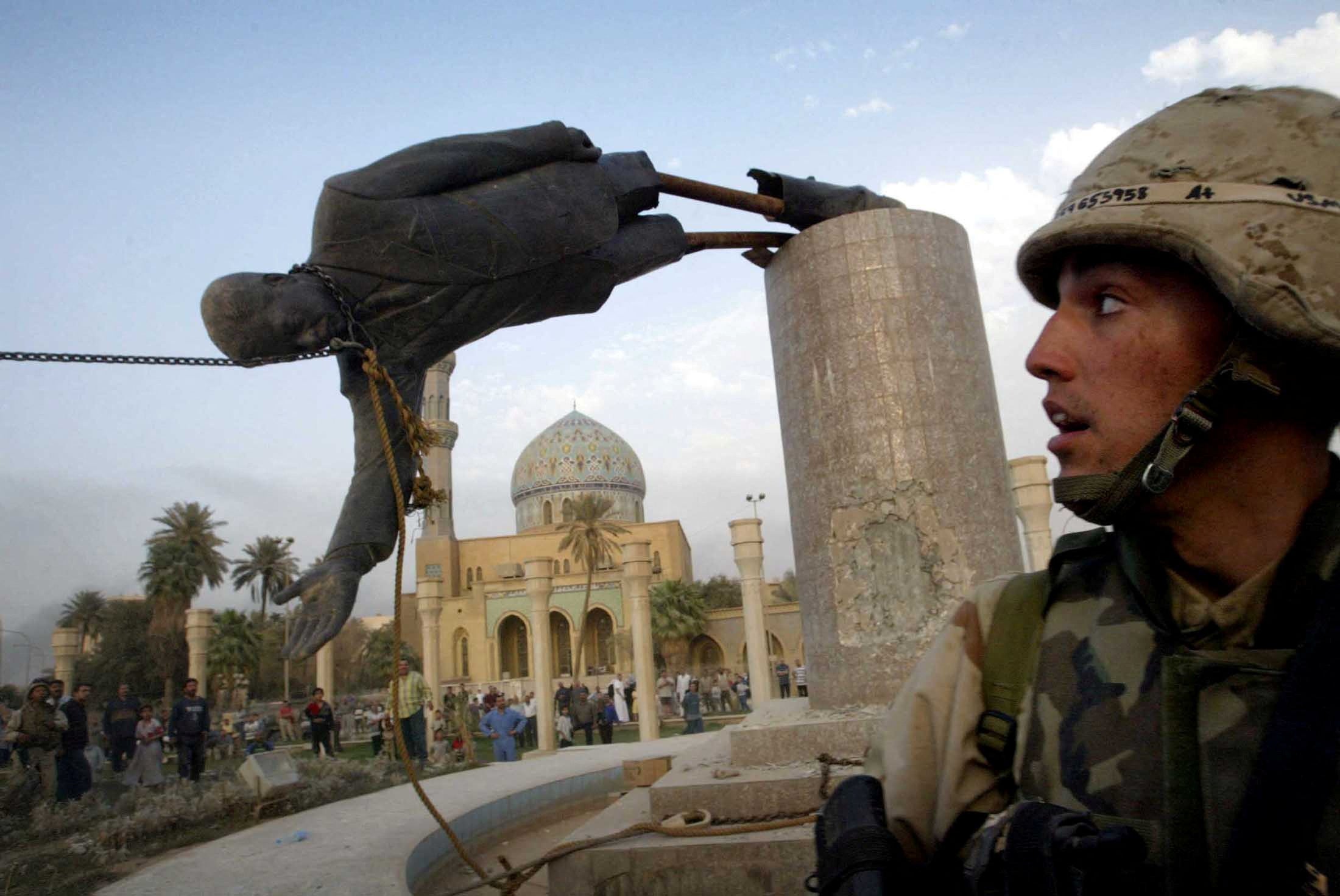We must never forget the terrible consequences of the Iraq war
Editorial: We owe it to all those who have had their blood spilt to ensure that the same catastrophic errors are not repeated

Twenty years ago, the invasion of Iraq began with the blinding explosions of “shock and awe” – but the truth soon became clear to see.
The falsehood upon which the case for war was built – the idea that Saddam Hussein possessed weapons of mass destruction (WMDs) – was exposed swiftly after the operation was launched. But the damage it caused stretches into the present day. The Independent stood up against the invasion, and what followed would only reinforce that view.
Whatever relief might have been felt at the fall of Hussein’s regime was overtaken by the chaos and extreme violence that followed. Hundreds of thousands of Iraqis are believed to have been killed, as well as thousands of troops from the US-led coalition, including almost 200 members of the British armed services. There was also the death of Dr David Kelly, embroiled in the intelligence row of which WMDs were at the centre. So many families left without their loved ones.
Then there were those displaced, millions either fleeing Iraq or losing their home within it. And the vast sums of money spent on the invasion – funds that went towards the destruction of lives, rather than the improvement of them. This was compounded by the lack of planning about what would come after the invasion, leaving a vacuum that was filled with sectarian violence.
The death toll has kept rising, with the aftermath of the invasion providing fertile ground for jihadi groups to fester and spread their influence. The war would prove a birthing ground for Isis, which just over a decade later would go on to take vast swathes of both Iraq and Syria and spread its own hateful brand of terror to Europe.
There were other implications too: horrors such as those at Abu Ghraib only sought to undermine the ideals that the US and UK said they were seeking to uphold. Nations like Russia saw it all unfold and President Vladimir Putin has never been shy at suggesting that the West has little moral authority, using that to chip away at the idea of a rules-based international community. There is an argument that his invasion of Ukraine is the endpoint of that increasing confidence to do as he wished.
There is no great joy in pointing out these failures, the monumental impact of launching the invasion. There has been plenty of regret expressed over the years relating to the disastrous chain of events that the decision to go to war sparked – but there are clearly lessons that we need to ensure we do not forget.
One of the great strengths of the reaction to Mr Putin’s invasion of Ukraine has been the collective action of the West. In an increasingly polarised world, rashness and a lack of planning will only lead to other disasters. Considered action can still be decisive. Hubris had no place two decades ago – and the same is true now.
As the years move on and the generations who have no memory of the Iraq invasion grow, we cannot let it drift out of the public consciousness. It is a painful part of history, particularly given the risible foundations upon which it was built, but it is likely to be many years yet before the consequences of March 2003 are fully reckoned with. We owe it to all those who have had their blood spilt to ensure that the same terrible errors are not repeated.



Join our commenting forum
Join thought-provoking conversations, follow other Independent readers and see their replies
Comments